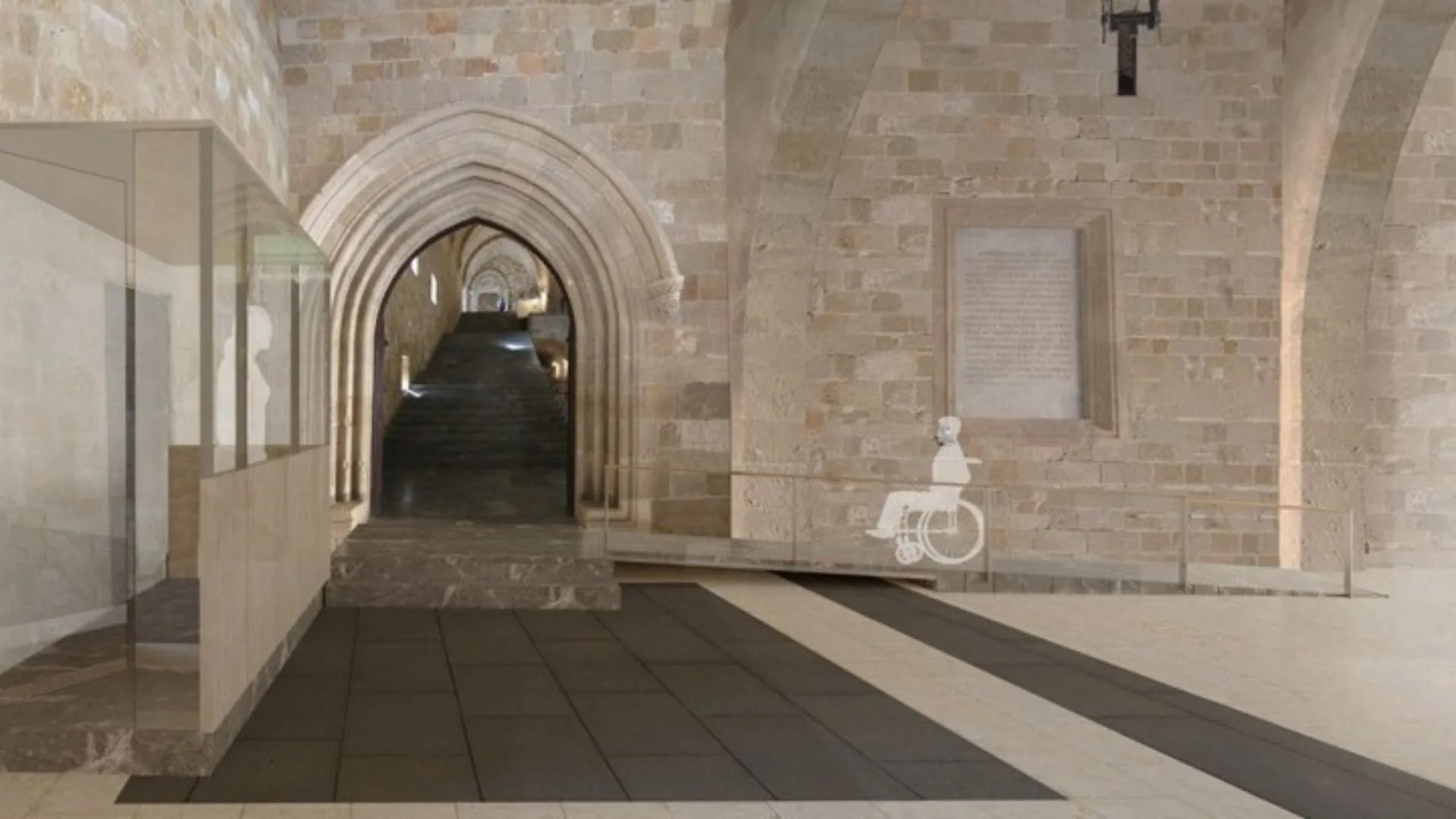The Ministry of Culture is advancing a project focused on the preservation and promotion of the Palace of the Grand Master, located within the UNESCO-listed Medieval City of Rhodes. This effort is part of a strategic plan to enhance the historic city, amna.gr, has reported.
Recognizing the monument’s importance, the Ministry assigned the Technical University of Crete to conduct a detailed study. The research aims to assess the current condition, analyze structural issues, and propose restoration solutions for the landmark.
Culture Minister Lina Mendoni noted: “The Medieval City of Rhodes is one of the enormous comparative advantages, not only of Rhodes and the Dodecanese, but of Greece. It constitutes a residential complex, unique in our homeland, which has been preserved almost intact, with its fortifications and urban organisation, public buildings, temples and residences. We must invest in this area, which was declared and included in the UNESCO World Heritage monuments, in order to create a better future for the city itself and its inhabitants. A dominant and major monument is the building complex of the Grand Master’s Palace.”
The Palace, situated at the northern end of the medieval city, reflects the ancient street layout. Its architecture is marked by asymmetry from multiple construction phases. The four-level structure, with three basement levels, serves multiple functions: visitor areas, conservation workshops, and exhibition spaces. Key exhibitions on the first floor include “Hermes Balducci pinxit. Mosaic floors from Kos” and “From the Hospitallers to the Knights of Malta.” The basement houses part of Rhodes’ historical exhibits.
Source: amna.gr

